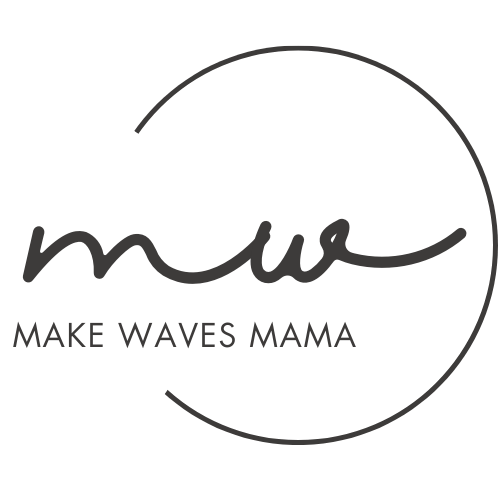What Actually Helps a Family Facing Cancer
May 22, 2025
A few months ago, I shared on Instagram how we built our "cancer support village" during my husband's treatment. Today, we're getting even more specific. After countless conversations with fellow patients and caregivers, we realize that many people want to help but don't know how. And sometimes, what people think helps... doesn't.
So here's our honest guide to what actually helps us through cancer treatment, from both the patient (my husband) and caregiver (me) perspectives.
The Patient Perspective: What Actually Helps Him
Normalcy in Chaos
Cancer treatment turns life upside down, making normal moments precious. Friends who treat him like a person, not just a patient, provide essential mental relief. The conversations that aren't about cancer are often the most healing.
The friends who can sit with him and talk about anything BUT cancer give him mental space to breathe. Sometimes he needs to process his treatment, but other times he desperately needs to feel normal.
The people who understand that cancer is something he is going through, not something he has become, make all the difference. They still see him as him, who happens to be dealing with cancer, rather than defining him by his diagnosis. This perspective helps him maintain his sense of identity when treatment threatens to consume everything else.
Also, the friends who acknowledge the weirdness of the situation instead of pretending everything is normal help break the tension. A simple 'I don't know what to say, but I'm here for you' is often more meaningful than forced cheerfulness or avoiding the topic entirely.
Loving Connection Without Expectation
Each time my husband receives a message from a friend or family member, he feels connected to the world beyond his treatment. The most meaningful messages come without any expectation for him to respond.
Cancer is inherently isolating - whether because of hospital stays or immune system concerns at home. Those simple check-ins break through that isolation barrier, providing warmth and love when we need it most.
What surprises him is that he doesn't just want sympathy; he genuinely wants to hear about others' everyday lives. These glimpses of normalcy become little lifelines, reminding him of the world waiting for him beyond treatment.
Willingness to Hear the Bad Stuff
Cancer treatment isn't a linear journey of steady improvement. Some days are devastating, and the emotional toll can be as crushing as the physical one. The people who make the biggest difference are those who create space for my husband to express the full spectrum of his experience - including the darkest moments.
They don't try to immediately "fix" his feelings or redirect to positivity. They simply acknowledge his reality, sit with him in those difficult emotions, and validate that it's okay to not be okay.
This honest witnessing of his experience helps him process what is happening rather than wasting precious energy pretending to be "strong" or "positive" when he isn't.
Physical Support That Maintains Dignity
Physical limitations during treatment are frustrating enough without feeling like a burden. The most helpful supporters find ways to engage that preserve independence and dignity.
Friends go on mellow walks together with my husband. Instead of just dropping off meals, we get invited over for dinner to friends' houses, making support feel like normal social connection rather than charity.
Family members learn to offer assistance without hovering, recognizing when to step in and when to step back.
Information Management Treatment
Information overload and chemo brain are real. The people who help organize and distill complex medical information make decision-making less overwhelming.
My sister - a neurologist - helps to research and translate things. I take notes every time we meet with a doctor. This saves his foggy chemo brain from having to remember everything and helps him, us, communicate better with his medical team.
The Caregiver Perspective: What Actually Helps Me
Permission to Have My Own Experience
As a caregiver, I often feel guilty focusing on my own struggles when my husband is the one with cancer. The people who create space for my feelings without comparison are invaluable.
Friends who check on ME specifically, not just asking "how is he doing?" help me process my own grief and fear. They give me permission to have my own experience alongside his.
Respite Care Without Guilt
Caregiver burnout is real and dangerous. The people who insist on giving me breaks - and won't take no for an answer - preserve my mental health.
My mom will say "I'm picking up the kids on Saturday afternoon" – not "Do you need a break?" The non-negotiable approach frees me from the guilt of asking for help.
Practical Help That Doesn't Create More Work
Some well-intentioned offers of help unintentionally create more coordination work. The most helpful support requires minimal management from me.
Friends who consistently drop off meals without prompting are lifesavers. They'll simply text: "Food is on your porch" - no response needed. In contrast, messages like "What day works for a meal delivery?" or "Does anyone have allergies?" are considerate but become another task on my endless to-do list.
Friends who bring nourishing meals rather than treats are unknowing heroes. Managing our kids' sugar intake and bedtime routines is already challenging enough without adding chemo brain and caregiver exhaustion to the mix. The people who drop off wholesome dinners, cut fruit, or easy breakfast options remove one more decision from my overwhelmed plate.
The difference is subtle but significant: help that runs on autopilot versus help that requires my active management when I have no bandwidth to spare.
Specific, Time-Bound Offers
Generic "let me know if you need anything" rarely converts to actual help. The people who make specific offers with clear parameters make it easier to accept help.
When someone texts, "I'm dropping dinner off Thursday at 6pm, just leaving it on the porch unless you tell me otherwise" - that removes the mental burden of coordinating and the emotional hurdle of asking.
Acknowledgment That This Is Hard
Cancer caregiving can be isolating and invisible. The people who simply acknowledge the difficulty without trying to fix it help me feel seen.
A text from a colleague just says "This is really hard, and you're doing it well." No toxic positivity, no forced silver linings - just recognition.
Workplace Grace
My colleagues step up in ways that remove enormous pressure. They cover my responsibilities without making me feel guilty, give me flexibility to attend appointments without complex explanations, and create space for me to be present for my family when needed most. Having that professional support means one less area of my life feels like it's falling apart.
What Surprises Us Both: Unexpected Support That Matters
Showing Up for the Long Haul
Cancer treatment has a rhythm that many don't anticipate. Initial support often pours in at diagnosis, then dwindles during the marathon of treatment when it's needed most.
The friends who check in consistently months into treatment, when the initial shock has worn off but the grind continues - they are our lifelines.
The Gift of Distraction
Some of the most healing moments have nothing to do with cancer. Opportunities to laugh, be creative, or enjoy simple pleasures provide crucial mental escape.
The friend who sends "I love you" texts every day. The friends who plan nights out with zero mention of cancer, unless we want to talk about it. These moments of joy become our respite.
Financial Transparency
The financial burden of cancer is often an unspoken struggle. Between medical bills and reduced work capacity, the economic strain can be overwhelming. Direct financial support - without the awkwardness that sometimes surrounds money - relieves enormous stress.
During our first encounter with cancer in 2016, friends organized a "Go Fund Me" without us having to ask. This removed the barrier of pride that might have prevented us from seeking help. The funds covered countless unexpected expenses that insurance didn't touch - from parking fees to special foods during treatment. When we had leftover funds, we donated them to our first Cycle for Survival team, continuing the circle of support.
Being transparent about financial needs may feel uncomfortable, but it addresses one of the most practical aspects of the cancer journey.
The Family Perspective: What Actually Helps Our Children
Cancer doesn't just happen to an individual - it happens to the entire family. Our young children, ages 3 and 5 when leukemia hit, are experiencing their own version of this journey, often without the emotional vocabulary to express it.
Age-Appropriate Honesty
The child development experts who help us navigate truth-telling without overwhelming our kids provide essential guidance. They need to know enough to trust us, but not so much that they carry adult worries.
We find that simple, honest explanations like "Papa has an illness called cancer and the doctors are giving him medicine to help him get better" give our children enough information without frightening them. The specialists who help us find these words are invaluable.
Consistent Routines When Everything Else Changes
While cancer treatment creates unavoidable disruptions, the people who help maintain our children's core routines provide a crucial sense of security.
Our nanny keeps the daytime rituals exactly the same. The grandparents make sure weekend fun still happens even during hospital stays. Friends organize playdates. These consistent touch points anchor our kids when everything else feels chaotic.
Creating Safe Emotional Outlets
Young children often process complex emotions through play and creativity. A lot comes out during our own moments of play as a family. We discover that my son thinks Papa is angry with him - why he would be at the hospital for long periods of time. Our daughter thinks she is responsible for his sickness, because she happened to be sick in the days leading up to Papa's diagnosis.
These are all totally normal reactions and feelings.
We're grateful to the adults who facilitate these outlets when we aren't around, helping our kids express what they can't quite verbalize. The school psychologist creates special touch points of play - a safe space to explore difficult emotions that are healing.
Books That Help Our Children
Finding the right books makes a tremendous difference in helping our children process what is happening. These become essential tools for both starting conversations and normalizing their experience.
I've created a comprehensive resource guide of children's books about cancer that you can download and share - those that are especially meaningful to our family.
Reading these books together becomes a ritual that gives our children permission to ask questions and express worries they might otherwise keep inside. Don't underestimate the power of a good book to open conversations your children might not initiate on their own.
What Doesn't Help (Though Well-Intentioned)
Toxic Positivity
Forced optimism or dismissing fears with phrases like "stay positive" or "everything happens for a reason" often feels invalidating. What helps instead is acknowledging reality while still holding space for hope: "This is really hard, and I'm here with you through it all."
Unsolicited Medical Advice
Treatment decisions are complex, personal, and made with medical teams. Well-meaning suggestions about alternative treatments or stories about others' cancer journeys often create confusion rather than clarity.
The most helpful approach is simply asking, "How do you feel about your treatment plan?" and then listening without judgment.
Whispering About Cancer Around the Children
People who suddenly go quiet or change the subject when our kids enter the room unintentionally signal that cancer is something scary or shameful. This contradicts our efforts to normalize our family's experience.
What helps instead is following our lead on how we discuss cancer in front of our children - with age-appropriate honesty and matter-of-fact language.
How to Support A Family Through Cancer: Our Top Five Takeaways
- Specific, time-bound offers - skip "let me know if you need anything" and instead make concrete plans. "I'm bringing soup Tuesday at 5pm" works better than asking what would help. Remove the decision-making burden from people who are already overwhelmed.
- Consistent check-ins after the initial shock - don't disappear once the casserole parade ends. The hardest moments often come months into treatment when everyone else has moved on but the patient is still in the thick of it. Set reminders to reach out regularly.
- Support for our children - kids are living this too, often without words to express their confusion and fear. Help preserve their routines, validate their feelings, and remember that they need their own support separate from what their sick parent needs.
- Permission to not be "inspiring" - cancer patients aren't required to be brave, positive, or grateful all the time. Create space for anger, fear, and despair without rushing to fix those feelings. Sometimes the most helpful thing is witnessing someone's reality without trying to change it.
- Joyful distraction - not every interaction needs to be about cancer. Text funny memes, plan movie nights, share gossip - whatever brought joy before illness struck. These moments of normalcy become precious lifelines.
Cancer changes everything, including how friendship and support work. By sharing what actually helps us, we hope to make this road a little easier for others walking it now. If there's one thing we've learned, it's that specific, consistent support makes all the difference between surviving and finding moments to thrive, even in the hardest circumstances.
Have you supported someone through illness or been supported yourself? What actually helps you? I'd love to hear - email me at [email protected].
Stay connected
Sign-up for a mix of honest insights, tips, and stories delivered to you each week via Your Weekly Boost.
We hate SPAM. We will never sell your information, for any reason.

